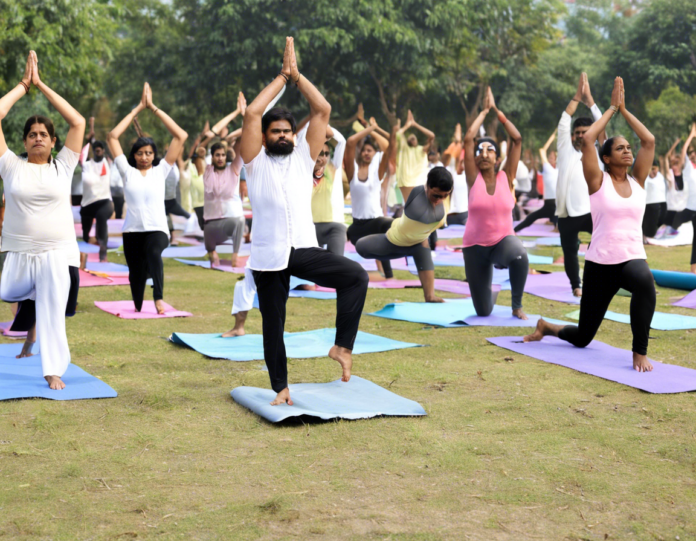Practicing yoga offers a multitude of benefits beyond just physical fitness. In recent years, there has been a growing body of research supporting the positive impact of yoga on mental health. On International Yoga Day, let’s delve into 5 key benefits that yoga can provide for mental well-being.
Stress Reduction
One of the most well-known benefits of yoga is its ability to reduce stress. Through focus on breathing and mindful movement, yoga stimulates the parasympathetic nervous system, which helps the body relax and de-stress. Regular practice of yoga has been shown to lower cortisol levels, the hormone responsible for stress, thereby promoting a sense of calm and mental clarity.
Improved Mood
Yoga is often praised for its ability to boost mood and alleviate symptoms of anxiety and depression. The combination of physical postures, breathing exercises, and meditation in yoga can increase the production of serotonin, the “feel-good” neurotransmitter, and decrease levels of the stress hormone cortisol. This can lead to an enhanced sense of well-being and improved mental health.
Enhancing Mental Strength
Yoga is not just a physical practice; it also involves mental discipline. The focus on mindfulness and present-moment awareness in yoga can help individuals develop cognitive resilience and emotional regulation. By cultivating mental strength through yoga, individuals may find it easier to cope with challenges and navigate through life’s ups and downs with greater equanimity.
Better Sleep Quality
Sleep plays a vital role in mental health, and many individuals struggle with insomnia and sleep-related issues. Yoga can be an effective tool to improve sleep quality by calming the mind and relaxing the body. Certain yoga poses, such as forward bends and restorative poses, can help activate the parasympathetic nervous system, preparing the body for a restful night’s sleep.
Increased Self-Awareness
Yoga encourages self-reflection and self-awareness by inviting individuals to connect with their inner selves through movement and breath. This heightened awareness can lead to a deeper understanding of one’s thoughts, emotions, and behaviors, fostering self-compassion and acceptance. By cultivating self-awareness through yoga, individuals can develop a healthier relationship with themselves and others.
In conclusion, the practice of yoga offers a holistic approach to enhancing mental health by addressing various aspects of well-being, including stress, mood, mental strength, sleep, and self-awareness. By incorporating yoga into your routine, you can experience these benefits firsthand and nurture a healthier mind-body connection.
Frequently Asked Questions (FAQs) about Yoga for Mental Health:
Q1: Can yoga help with anxiety and panic attacks?
A1: Yes, yoga can be beneficial for managing anxiety and panic attacks by promoting relaxation, deep breathing, and mindfulness, which can help reduce symptoms of anxiety and prevent panic attacks.
Q2: How often should I practice yoga for mental health benefits?
A2: Aim to practice yoga regularly, ideally 3-5 times a week, to experience the full mental health benefits. Consistency is key in reaping the rewards of yoga for mental well-being.
Q3: Is yoga suitable for beginners with no prior experience?
A3: Absolutely! Yoga is accessible to individuals of all levels, including beginners. There are beginner-friendly classes and poses that can help you ease into the practice and gradually build your skills.
Q4: Can yoga be a form of therapy for mental health conditions?
A4: While yoga can complement traditional therapy approaches, it should not replace professional mental health treatment when dealing with serious conditions. Consult a mental health professional for personalized guidance.
Q5: Are there specific types of yoga that are more beneficial for mental health?
A5: Restorative yoga, yin yoga, and mindfulness-based practices like Hatha or Kundalini yoga are often recommended for mental health benefits due to their focus on relaxation, breathwork, and mindfulness.
By incorporating yoga into your routine and practicing it mindfully, you can harness its transformative power to nurture your mental health and well-being. Happy International Yoga Day!












